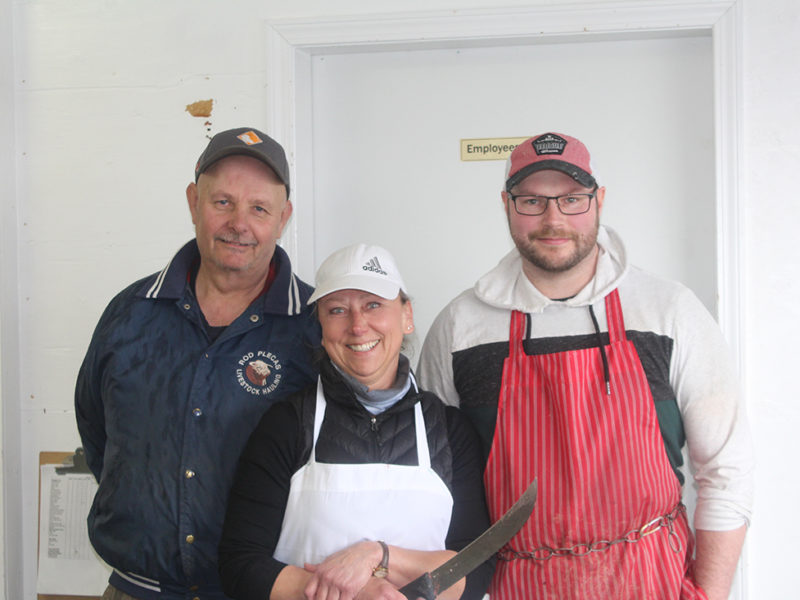PORT ALBERNI – The Alberni Farmers’ Institute is renewing a request to have the Alberni-Clayoquot Regional District (ACRD) designated a Class D and E licensing area under BC’s Meat Inspection Regulation.
“The regional district first made a formal application to the government back in 2017,” says Lisa Aylard, president of the Alberni Farmers’ Institute. “They sent a follow-up request last September during the province’s consultation with regional districts about Class D slaughter licences as part of their on-going contact with the government over this issue. But no decision has been made.”
ACRD lacks an A or B-class processing plant for red meat. The recent closure of Plecas Meats in Nanaimo means the closest provincially licensed abattoir to Port Alberni is 103 km away in Courtenay. The next closest is in Duncan, 134 km away.
Aylard says the COVID-19 crisis has just made the situation worse.
“Travelling that far is not acceptable for health and safety reasons,” she says. “We are seeing an increase in consumers wanting to purchase local meat during this time and producers in our region are facing an unfair economic hurdle to have to travel away and back to provide meat for those customers.”
Paying someone else to process animals means less profit for small farmers.
“We have lost a lot of local agriculture because of this,” says Aylard. “There used to be a lot of people in the valley who had one or two cows.”
While the number of animals in the area doesn’t warrant a Class A facility, she says a Class D plant could go a long way to encourage more meat production.
Affordable land in the Alberni Valley is attracting new farmers.
“We have these young people in our farmers’ institute that are all gung-ho and then they get hit with these regulations [against on-farm slaughter,” says Aylard.
Increased demand
The lack of a local abattoir was highlighted as a barrier to development of the regional livestock industry in the ACRD agriculture plan drafted in 2011. A feasibility study for a Class A plant for red meat in 2016 highlighted many benefits but the community said it was not feasible due to a lack of funding, management and inadequate production volume.
But demand remains, and has even increased.
“The lack of access to red meat slaughter services has been a key roadblock to sustaining livestock production within our region,” the ACRD told BC agriculture minister Lana Popham last September. ”Our producers are suffering due to the competitive disadvantage of having to transport out of the region and the lack of access to services.”
“What we need is the ability to do on-farm slaughter the way farmers always have,” says Aylard. “When the regulations changed after BSE, it took away our control and our ability to make economic development on local farms.”
She is not opposed to a change to provincial inspection for remote facilities.
“If they can do long-distance support for remote medical surgery, I’m sure we can put something in place for animal processing,” she says.
The lack of government response to the issue is frustrating.
“The wheels on the bus are turning awfully slowly,” says Aylard.


 Chilliwack family cracks open direct sales
Chilliwack family cracks open direct sales